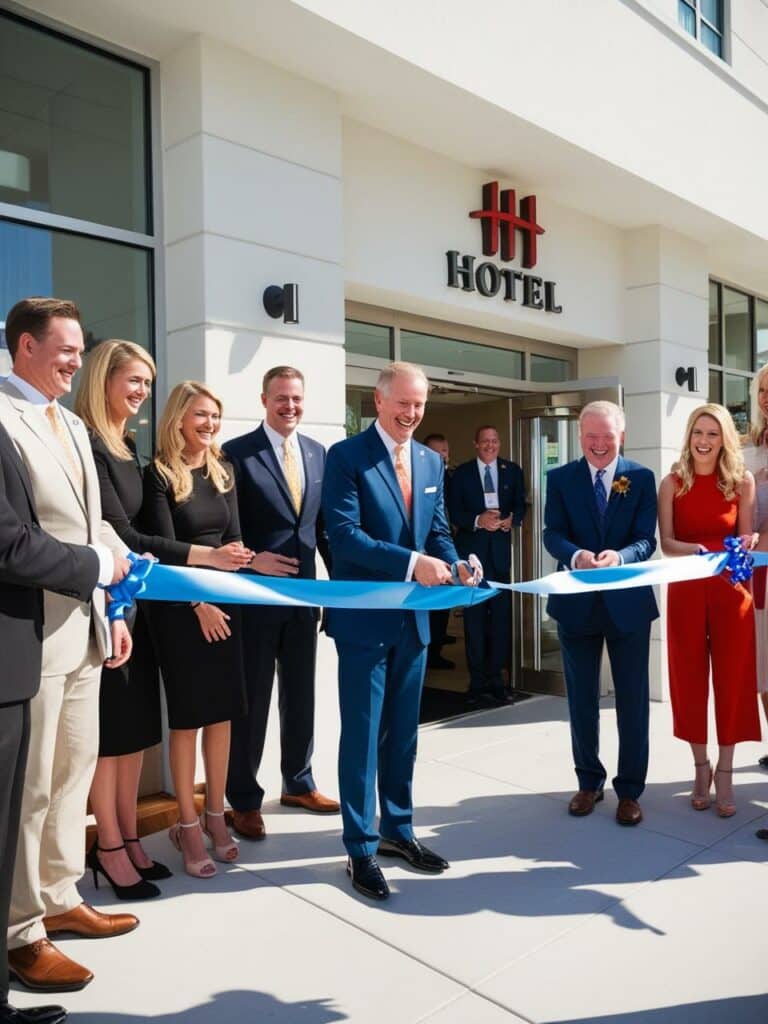
Opening a hotel is a major strategic milestone. Dense and decisive, this phase lays the technical, human, and commercial foundations for the future operation. Decisions made at this stage directly influence operational smoothness, the quality of guest relationships, and, more broadly, the long-term performance of the hotel.
In this context, with generally small teams, the focus naturally falls on the most urgent tasks. Yet some foundational tools—often deprioritised—can have a decisive impact from the very first months of activity.
This article explores the key challenges faced when launching a hotel: data management, reducing dependence on OTAs, saving time, building reputation, boosting upselling, and structuring customer relationship marketing. Finally, we will see how integrating a hotel CRM from the outset offers a practical and suitable answer to these challenges.
1. Build Your Customer Database from Day One: Data Collection and Organisation
The start-up paradox
From day one, a hotel is collecting guest information—names, addresses, emails, even preferences, reasons for travel, or booking channels. However, without dedicated tools, this data often ends up in separate silos: the PMS, inboxes, website, spreadsheets. The result? No way to cross-reference or leverage it. You start gathering data without capitalising on it.
An invisible organisational debt
This lack of structure isn’t immediately apparent, but it becomes costly: unusable guest lists, no personalisation, wasted time. Worse still, this technical debt becomes harder to fix over time. Installing a CRM allows for immediate centralisation, creating complete guest profiles from the outset.
2. Filling rooms through OTA bookings: An initial necessity to be managed
An essential “springboard”
At launch, it’s difficult to do without booking platforms like Booking.com or Expedia. They offer instant visibility and reassure customers. First bookings come in quickly and the hotel is easily indexed. But be careful not to become dependent on these platforms.
Losing control of the guest relationship
Without efforts to build direct relationships, another reality soon appears: limited guest information, no direct communication, and hefty commissions on each night sold. The hotelier remains passive, with little leverage to build loyalty or tailor experiences. A hotel CRM helps reverse this trend by using these OTA-generated data to drive direct bookings.
3. Creating lasting first impressions: Personalising initial guest experiences
Delivering a personalised welcome experience
Even before guests arrive, your welcome process should be set. A CRM simplifies this with tools like personalised welcome emails, tailored service recommendations, and local tips. Even small gestures—remembering a guest’s preference for a sea-view room or their transport method—can greatly enhance the experience.
4. Time: The silent enemy
Everything needs doing, all at once
When a hotel opens, each day feels like a sprint: finishing touches, staff training, technical tweaks… Day-to-day operations dominate, leaving strategic tasks on the back burner.
Today’s delay becomes tomorrow’s problem
Guest communications, quality control, marketing emails—these may seem secondary during launch chaos. Yet, integrating a CRM from the start frees up valuable time and makes the launch far more efficient.
5. Reputation: Everything hinges on the early days
Early reviews making extra impact
A single bad review in the first few weeks has far more impact than one lost in hundreds over the years. It’s a permanent mark on Google or Tripadvisor—when your e-reputation is most vulnerable. Conversely, positive reviews early on can greatly boost your visibility.
The importance of prompt feedback
But structured e-reputation monitoring is essential: knowing who was satisfied, who wasn’t, and why; responding and taking action. Without formal tracking, you rely on instinct or sporadic feedback and miss critical signals. A hotel CRM helps manage online reputation across multiple platforms, saving time and offering key insights.
6. Upselling: An often overlooked opportunity
A readily available opportunity
When booking a room, many guests are open to extras—breakfast, spa access, local experiences, upgrades… Yet these opportunities often go unnoticed in the launch frenzy.
A matter of timing
It’s vital to make the right offer, at the right time, with the right message. Without tools or guest history, it’s hard to provide relevant suggestions. Pre-arrival and in-stay campaigns, along with a digital concierge, allow you to promote additional sales even before the first guests check in. These offers can then be adjusted based on early feedback for optimisation.
7. Strategic marketing from day one
Automate to seize the moment
Automated campaigns make it easy to launch effective hotel marketing, such as birthday promotions or national holiday deals. At the same time, one-off campaigns—newsletters or seasonal offers—can be created and sent in just a few clicks to the right audience at the right time. Campaign performance is tracked in real time: open rates, click rates, and more importantly, revenue generated. This built-in reporting allows full marketing control without extra tools.
Plan ahead rather than playing catch-up
Waiting for demand to dip before building a marketing strategy risks being too late. By integrating a CRM from the outset, you lay the groundwork for effective, data-driven relationship marketing, with ready-to-use actions that support your business year-round.
8. Encourage loyalty from day one: Launch early loyalty program
Foster loyalty from the first impression
A CRM makes it easy to set up loyalty program early on—rewarding first guests and encouraging repeat bookings. These programmes can offer perks, discounts, and exclusive deals to loyal customers. Tracking engagement and preferences through the CRM allows for customised rewards. Building guest loyalty from day one is crucial for long-term success.
Conclusion
The takeaway from all this? A newly opened hotel faces multiple, tightly connected challenges: data quality, guest relationship management, time constraints, reputation, commercial performance, and communication capabilities.
What links all these levers is the structure and automation of guest relations. This is where a specialised CRM, such as Experience, designed specifically for the hotel industry, becomes a true driver of success.
By integrating it from day one, you can:
-
Avoid building technical and organisational debt
-
Gain control over guest data from the start
-
Manage OTA impact while building a direct customer base
-
Begin automating tasks to save time at launch
-
Organise review collection and manage reputation from the first stays
-
Easily implement upselling opportunities
-
Launch targeted marketing campaigns—even with limited resources
In other words, you’re not at the mercy of your hotel launch—you’re in control of it.

